Graduate students
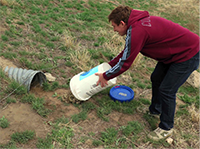
Dr. Anthony J. Saviola
Anthony graduated with his PhD from the University of Northern Colorado in spring 2015, and he received both the Graduate Dean’s Citation for Excellence (PhD student) and the Graduate Dean’s Citation for Outstanding Dissertation. His dissertation explored several aspects of the biological roles of disintegrins in venoms and their potential as anti-cancer therapeutics contributing to rational drug design. He also conducted proteomic analyses of rattlesnake and colubrid snake venoms and published the proteome of the Prairie Rattlesnake (Crotalus viridis viridis) from Colorado. He was a postdoctoral research scientist at Cornell Medical School in New York City and was working in a cancer research laboratory where he honed many molecular techniques and coauthored several papers. Anthony was also a postdoctoral research scientist in the proteomics lab of Dr. John Yates at the Scripps Institute in San Diego, CA. Currently, Anthony is head of the Proteomics Core in the Department of Biochemistry and Molecular Genetics, University of Colorado Denver. When not in the lab, he enjoys traveling and long distance running.
Cassie Modahl is from Minneapolis, Minnesota, and graduated from UNC with her PhD in 2016, receiving the Graduate Dean’s Citation for Excellence (PhD). She specializes in RNA-seq, differential gene expression, de novo transcriptome assembly and proteomics. She was a postdoctoral research fellow in the lab of Dr. R.M. Kini at the National University of Singapore, and was working on several projects involving bioinformatics related to mosquito-borne viral diseases. However, she also still works on venomous snake transcriptomics, proteomics and genomics, now at the Centre for Snakebite Research and Interventions, Liverpool School of Tropical Medicine, in Liverpool, U.K. Cassie has ongoing interests in integrated ‘omic’ methods to tackle research questions, with a focus on research questions involving molecular adaptation in predator-prey and vector-pathogen systems. When not doing research, Cassie also enjoys traveling and long distance running.
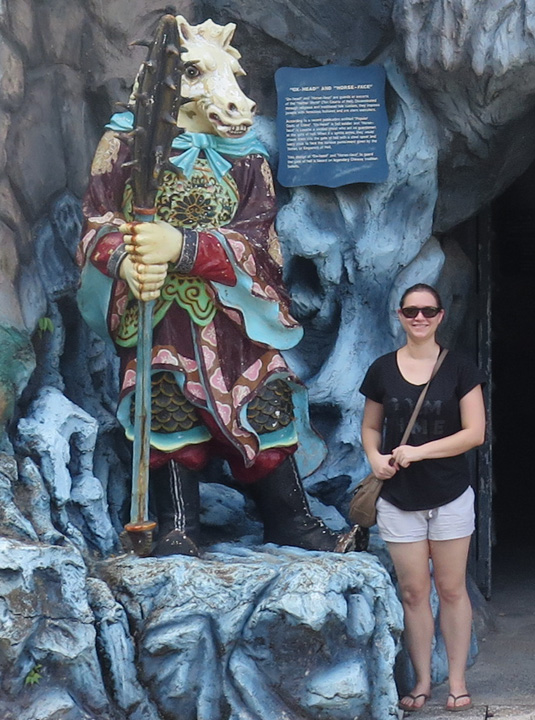
Dr. Cassandra M. Modahl
Dr. Ann-Elizabeth Nash
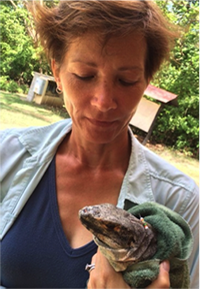
Ann-Elizabeth (AE) Nash is originally from Buffalo, NY, and earned her B.S. from Rochester Institute of Technology. She moved to Colorado to escape snow and enjoy sunshine. As a doctoral candidate, Nash studied animal social groups, specifically the Spiny-tailed Iguana, Ctenosaura similis, in Palo Verde National Park, Costa Rica. Her research combines molecular ecology, animal personality, and social network analysis to understand the characteristics and consequences of the social structure of C. similis, a long-lived, oviparous lizard with high site fidelity. Future research plans include how social position affects mating success and fitness as well as cognition. Nash is interested in the conservation and welfare of reptiles and amphibians in captivity and in the wild. She received her PhD from the University of Northern Colorado in December 2019 but continues to work with Iguanas in Costa Rica and elsewhere. In addition to her research, Nash runs Colorado Reptile Humane Society. She shares her home with reptiles and mammals, and enjoys trying new restaurants and traveling.Place cursor at the end of this sentence and press [enter] to add more content.
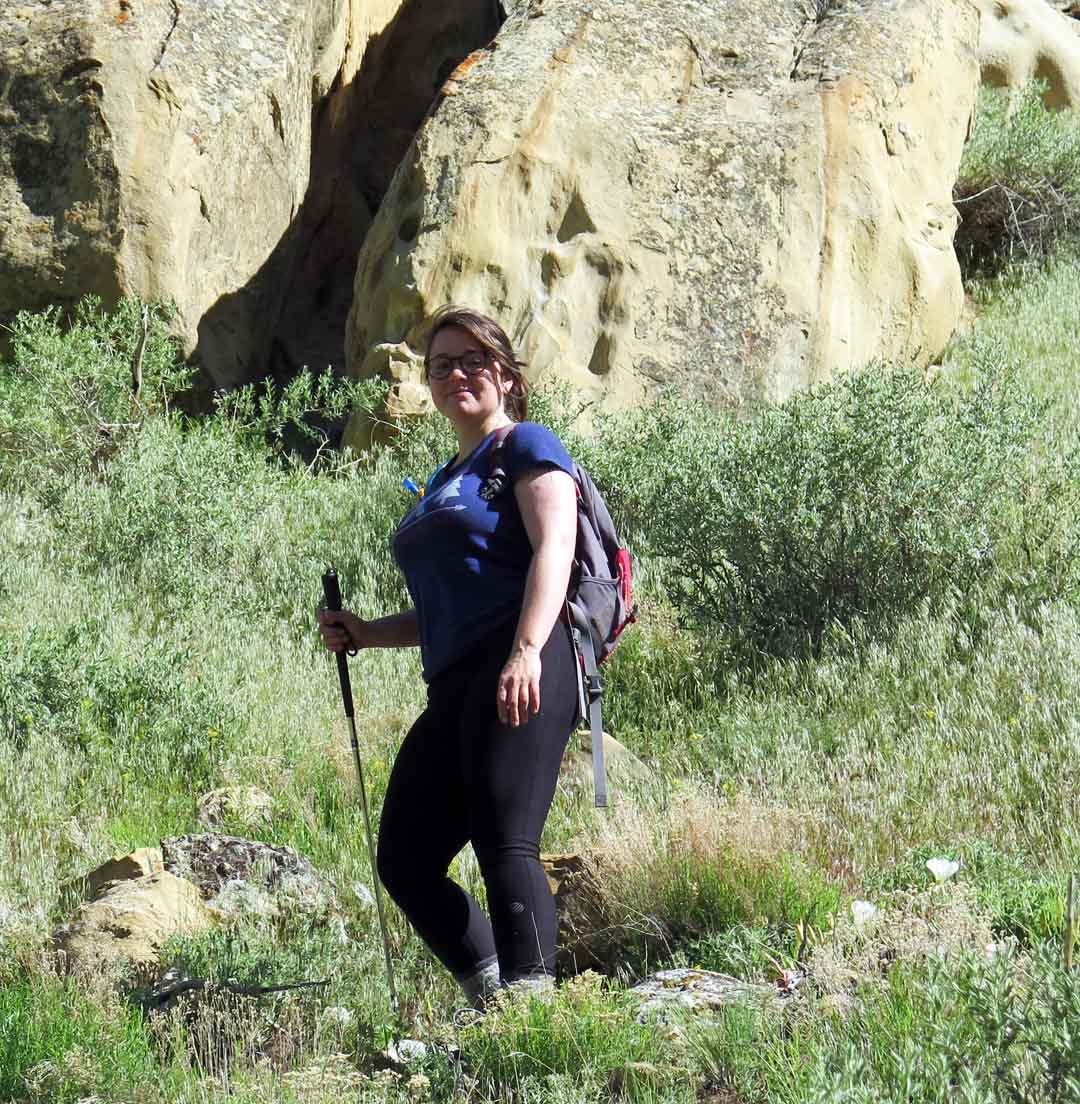
Dr. Cara F. Smith
Cara Smith is originally from Virginia and earned her bachelor’s degree in Biology and Chemistry from the College of William and Mary. She completed her PhD student studying sources of venom variation in the Western Rattlesnake complex (Crotalus viridis/oreganus). Cara also curated the reptile and amphibian collections in the Natural History Museum at UNC. Currently she is a postdoctoral research associate in the Proteomics Core Facility in the Department of Biochemistry and Molecular Biology, CU Denver. In the future, she plans to continue investigating the sources and consequences of toxin variability in venomous creatures and to become a curator of vertebrate zoology. In her spare time, she enjoys exploring the desert, backpacking, and baking.
Brenda K. Jones
Brenda Jones completed her Masters degree on the venom phenotype of the White-lipped Island Pitviper, Trimeresurus insularis, in 2015. She is currently working at HTG Molecular Diagnostics in Tucson AZ as a Corporate Applications Specialist.
Chris Rex completed his Masters degree at UNC in 2013; he is currently a math teacher at Fort Wayne Community Schools in Indiana.
Christopher J. Rex
Emily Grabowsky
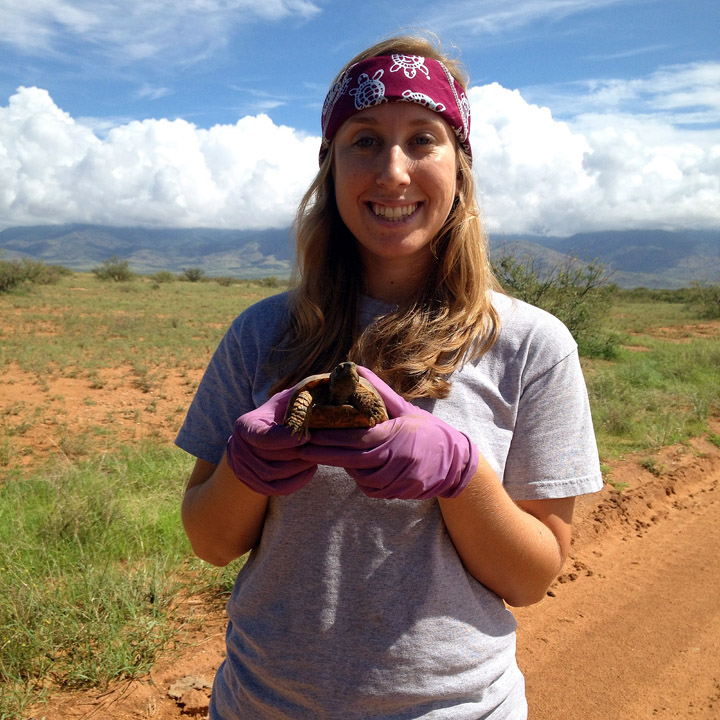
Emily Grabowsky received her Master’s degree in Biological Sciences at UNC in 2018 and was awarded the Graduate Dean’s Citation for Outstanding Thesis. She was born in New Jersey, but has spent most of her life in Colorado. After graduating with her Bachelor’s degree from Colorado State University, she moved to Arizona to study herpetofauna and adventure around the desert before starting graduate school. Although she has been able to work with many species, from horses to hyenas to tortoises, her time in Arizona helped her narrow down interests. She studied the venom composition and ecology of the tiny, mountain dwelling snake, the Twin-spotted Rattlesnake (Crotalus pricei). With this experience, she attained a career as a wildlife biologist (Washington State DNR) and continues research that will aid managers in developing conservation plans for wildlife (especially amphibians and reptiles!). Her other interests are very broad, but her favorite extracurricular activities always include some sort of outdoor adventure (hiking, skiing, snowshoeing, backpacking) with her dog.
Graham Dawson
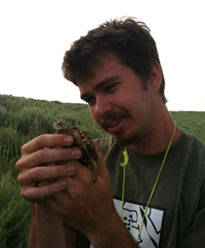
Graham Dawson was a Masters student in Biological Sciences at UNC. He is originally from Denver, Colorado and received his undergraduate degree in Biology, with a focus on ecology, evolution, and behavior, from Skidmore College in Saratoga Springs, New York. He is primarily interested in the social behavior of rattlesnakes and is interested in investigating possible social networks and whether they show kin recognition. After completing his Masters in spring 2018, he is working for an environmental consulting firm. Outside of the lab he enjoys brewing his own beer, running, biking and hiking.
Neil Balchan was a Master’s student in the Venom Analysis Lab and is originally from Winnipeg, Canada. Neil studied venom resistance at the community level, at study sites where the Prairie Rattlesnake (Crotalus v. viridis) and Desert Massasauga (Sistrurus tergeminus edwardsii) interact with an array of rodent prey species in eastern Colorado. In the future, Neil continues to pursue a career in academia at Oklahoma State University, with strong interests in venomous snake systematics and venom variation. In his free time, Neil can be found field herping, practicing falconry, travelling, and exploring the great outdoors.
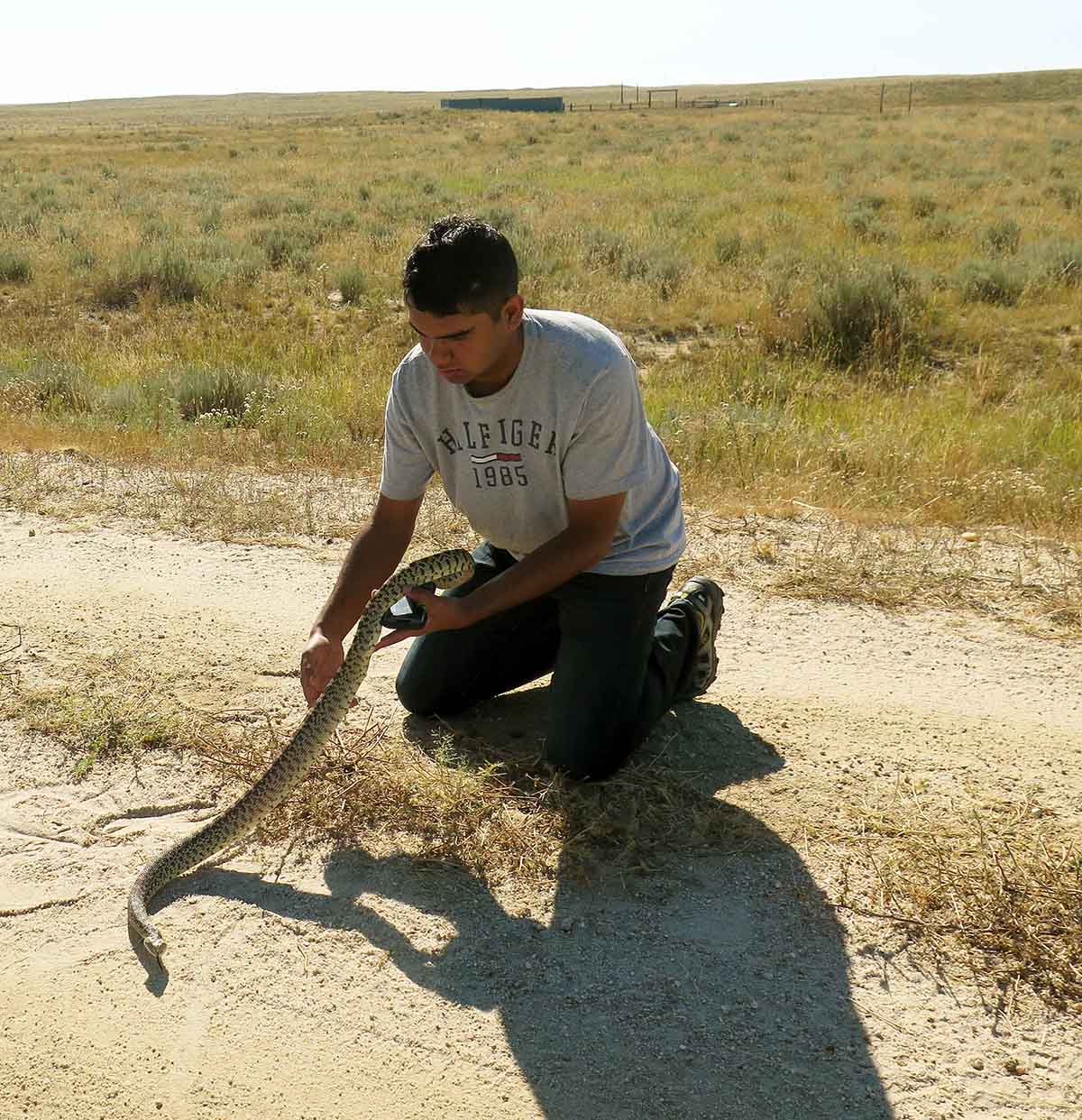
Undergraduate students
Castilleja Olmsted (center)
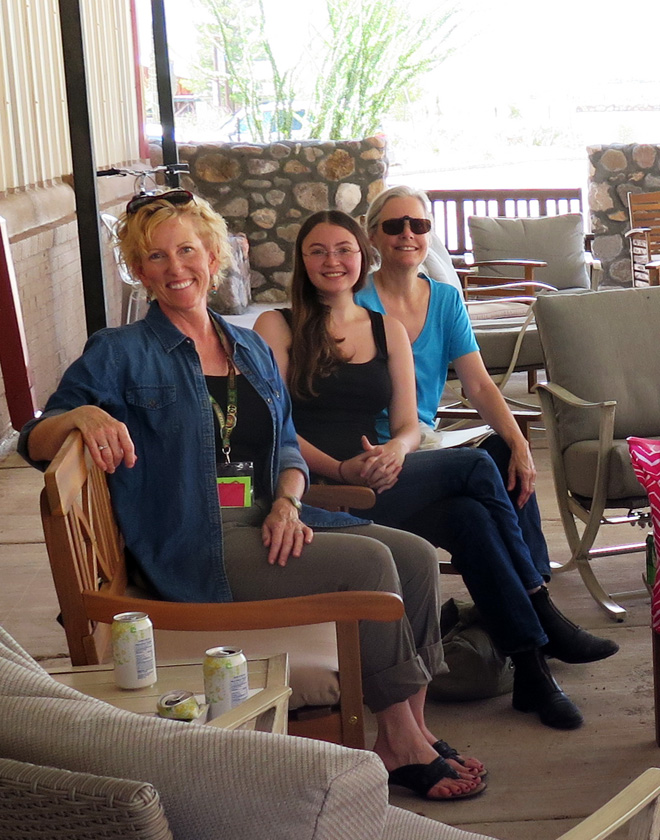
Castilleja Olmsted worked in the lab during summer of 2017, assisting with proteomic analyses of Crotalus viridis and Crotalus oreganus venoms as part of an NSF-funded project. Originally from Greeley CO, she was a senior at Earlham College in Richmond and graduated in spring 2017. Cassie spent a semester overseas as a student in Granada, Spain, and she is fluent in Spanish. She is currently a PhD student at Pittsburgh University and is particularly interested in plant biology, species interactions, ecology and conservation biology. Outside of the University, her interests include dance, martial arts and equestrian activities.
Keira Lopez
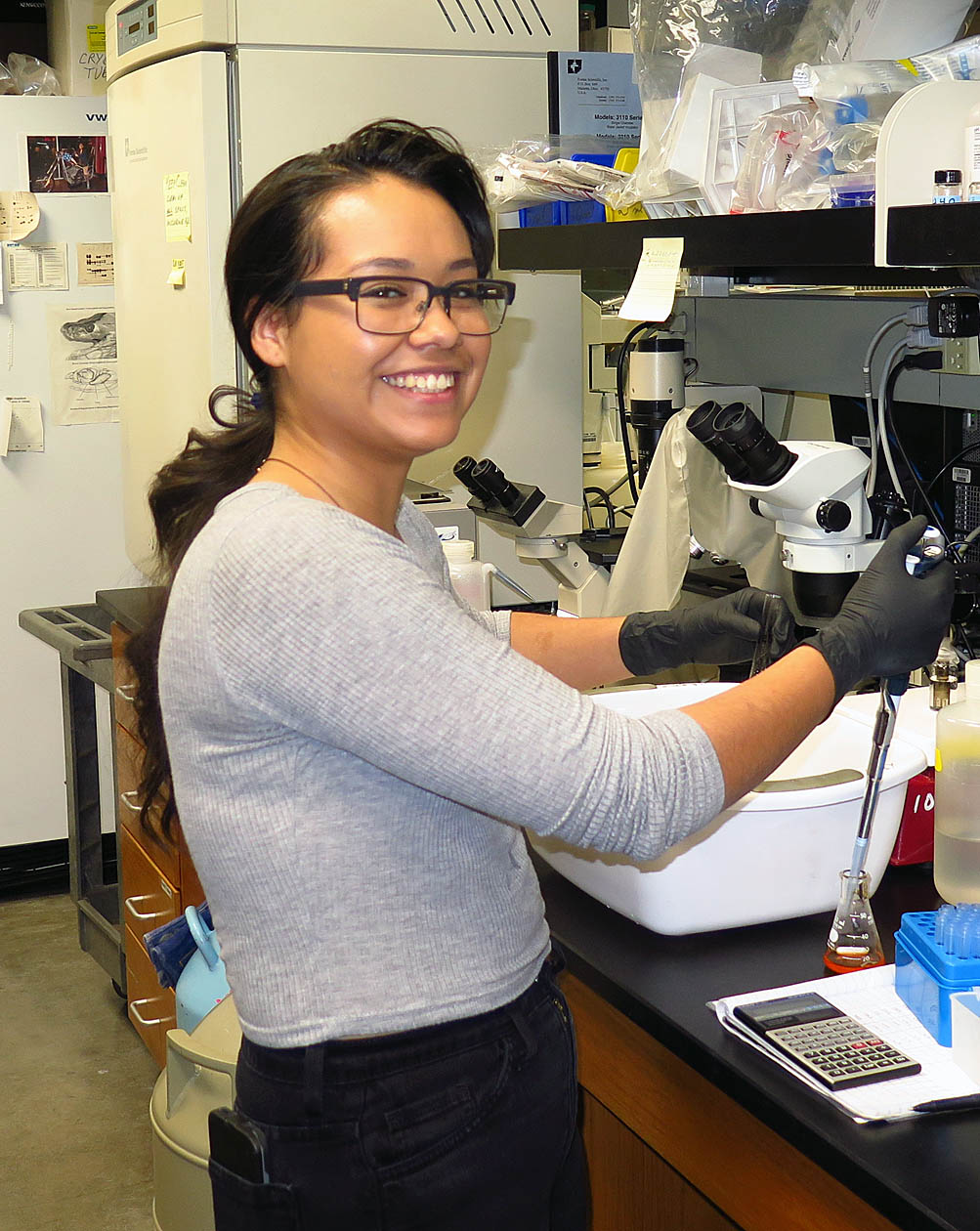
Keira Lopez started working in the lab in fall 2017, assisting with enzyme assays and electrophoretic characterization of several different snake venoms, and she graduated in Fall 2020. As an undergraduate she was double majoring in biology and chemistry with an emphasis in pre-health. She loves science and it is her goal to immerse herself in her studies by taking a wide diversity of classes before she goes to medical school. She would like to become a pediatric surgeon one day but she is open to considering other areas in medicine. Keira is currently a Research Assistant in the Proteomics Core Facility in the Department of Biochemistry and Molecular Biology, CU Denver. Outside of the lab and University she likes to practice martial arts and dance, and she enjoys reading and writing as well.

